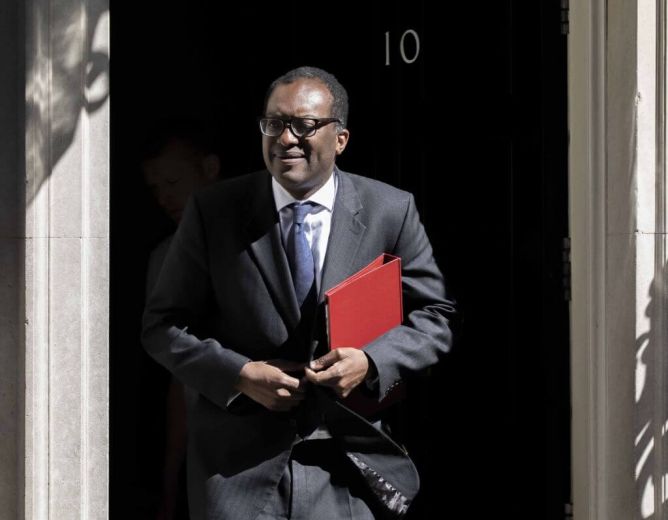Last week, the RAC reported that the average cost of filling a tank of petrol has hit £100 for the first time, with fuel prices continuing to rise in recent months, despite calls from the government to pass the savings onto the public.
Fuel prices have continued to rise in recent months following the Russian invasion of Ukraine in February – and the impact of the ongoing cost of living crisis.
In response, Kwarteng sent an open letter to the CMA stating that ‘there remains widespread concern about the pace of the increase in prices at the forecourt and, that prices may not fall as much or as fast as they rise’.
He has now asked the watchdog to look into whether the 5p fuel duty cut is being passed onto customers.
Kwarteng continued: "Drivers should be getting a fair deal for fuel across the UK. Healthy competition between forecourts is key to achieving this, with competition working to keep pressure on prices."
Today, the CMA responded to the request to look into the price for fuel in the UK.
Chief Executive of the CMA Andrea Coscelli CBE said: “High road fuel prices are causing significant concern for millions of consumers and businesses who rely on being able to afford to fill up their vehicles. As you note, global factors, including the war in Ukraine, have been the principal driver of recent trends. But if competition is not working well in the retail fuel market, pump prices will be even higher than they need to be.
“With that in mind, the CMA will, as you request carry out a short and focused review of the market, and provide advice to government on steps that might be taken to improve outcomes for consumers across the UK.”
Following the announcement from Coscelli, RAC fuel spokesperson Simon Williams said: "It’s good news that the CMA is to investigate retail fuel pricing as this should help ensure that drivers pay a fairer price at the pumps in the future.
"While this is clearly a positive step, it’s also important to realise that motorists tend to lose out most when there are significant drops in the wholesale price which retailers don’t pass on. This was the case in December when there was a big drop in the price of oil which should have translated to lower forecourt prices.
"Instead retailers stood strong, only lowering their prices by a couple of pence a litre when there should have been a 10p a litre drop in the average price of petrol.
"In a rising market, such as we’re experiencing in now, it’s very different in that retailers are constantly having to put up their prices to reflect the fact their costs are increasing every time they buy new stock. Since Russia invaded Ukraine on 24 February the wholesale price of petrol has gone up by 28%.
"This is why the Government’s 5p March duty cut has had little effect, whether or not it’s been fully passed on by retailers, and why they need to go further now to help drivers."

Breakdown cover from £5.29 a month for Standard cover*
• Cheaper than AA Price Promise or we’ll beat it by 20%^
• We get to most breakdowns in 60 mins or less
• Our patrols fix 4/5 breakdowns on the spot









